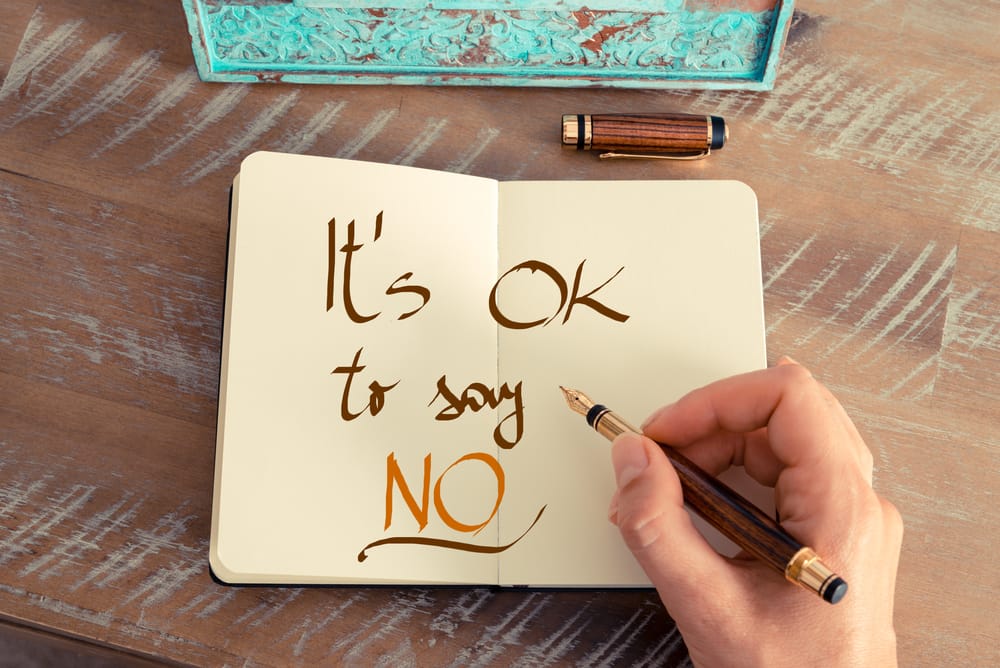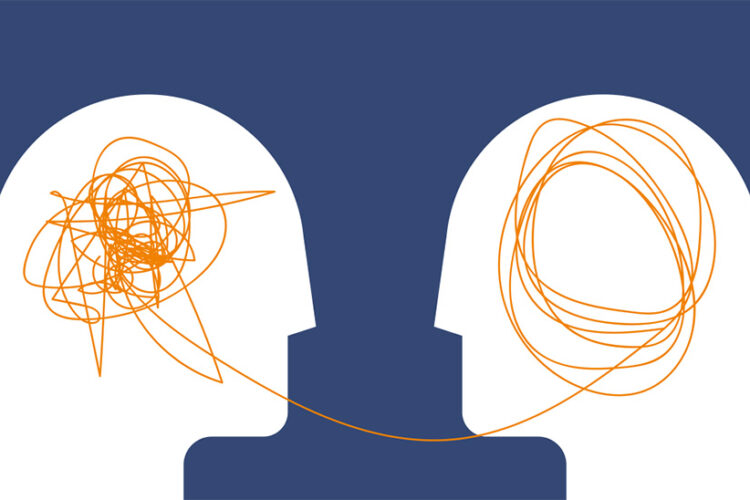
Danger of being too nice
Being “nice” is something that is ingrained into us from childhood; to help others, be thoughtful, and be generous of spirit. Showing compassion and kindness to the individuals we encounter daily, enriches both their lives, and our own.
Considering other people’s feelings, and not riding rough-shod over one another, is important. Being respectful and knowing when to compromise, makes life sweeter and generally things run smoother. Making others happy usually makes us well-liked and easy to get along with.
Unfortunately, though we may think that being everyone’s go-to person is great, there are some serious downsides to being “too nice”. It can take a toll on your physical and emotional health. These types of people tend to hold in negative emotions, such as anger and disappointment, which leads to frustration and resentments; and long term can result in anxiety, depression, and addiction.
Whilst kindness is most definitely a virtue, there is normally a limit to most people’s generosity. Unless you are one of those individuals described as “kind-hearted to a fault”, when it is not really meant as a compliment. Someone who consistently puts the needs of others above their own and is continually walked all over.
Could this be you?

The downside to being too nice.
If you are the type of person that will always say yes, then others (sadly) will take advantage of you. Maybe it’s the co-worker who needs their shift covered (because they have something fun they want to do); the neighbour whose dog needs walking (because they can’t be bothered); that school-mom who needs a babysitter (so she can get her nails done). It is great to help a friend who is in a bind, or someone who has an emergency; however, when you are continually being asked to put your life on hold, so other people can do exactly what they want, then resentments grow and fester, and eventually frequently result in some type of blow-out, or collapse.
Being “too” nice also means you attract the wrong relationships. This could be because you end up in either friendly or romantic relationships where you are being used by the other party. Persistently sacrificing your physical and emotional needs so the other person gets what they want, or so you can make them feel happy or rewarded.

It could even mean you are in a codependent relationship, when you are giving the lion’s share of the energy and focus to your partner, who is consciously or unconsciously taking advantage of the situation to fulfil their needs and desires. This type of behaviour is typical in relationships where one partner is struggling with substance abuse, alcoholism, or addiction; it becomes all about the addict. However, it can happen in any relationship whether it be with a colleague, another family member, or a friend.
Because of the inability to express your needs, wants, or set any boundaries, it can mean you get into relationships that are unhealthy, toxic, and even abusive. And continue to stay in them, even when leaving would be the ideal.
Has being constantly nice made you into a bit of a doormat? Or a people-pleaser? Are you nice simply because you want (or in fact need) people to like you? You are scared that people will reject or criticise you if you occasionally say no.
Are you in a relationship where you constantly sacrifice your wants, and needs, in favour of making your partner happy? Have you forgotten (or did you ever even know) how to set boundaries?

How can you tell if you are a people pleaser?
It is difficult to identify as a people-pleaser, we want to think of ourselves as thoughtful or considerate. But when does it cross the line and no longer be about being kind, it is something that is so innately deep-rooted in us, it is part of our personality. It becomes all about how we view ourselves, how we behave, how we treat ourselves and others; and it could even be causing us harm (emotionally and physically).
Here are some signs that you could be a people pleaser:
• You put your own needs and wants behind everyone else’s.
• You struggle to say no and set boundaries, often allowing others to take advantage.
• You want people to like you and crave validation from “good deeds”.
• You automatically say yes, or offer help, before thinking properly about the situation, the consequences, and the impact on yourself.
• You feel overly responsible for people and situations and are continually trying to “fix” mistakes or accidents.
• You worry about hurting people’s feelings and you don’t like confrontation.
• You hate the idea of letting someone down.
• You are a perfectionist and hold yourself to (impossibly) high standards.
• You find it difficult (unbearable) to ask for help.
• You don’t practice regular self-care, and as a result can suffer from stress, burnout, or exhaustion.
• You are often tense and anxious.
• You get sick, and frequently don’t take time to recover properly.
• You feel resentful and frustrated about situations, but don’t seem to be able to express it, or understand why it keeps happening to you.
Do any/all of the above ring a bell with you? Could your behaviour be making you sick? Is it affecting your mental health?

Changes you can make to take back some power and control in your life.
Pause – before agreeing to do something for someone else (or offering help), stop. Don’t reply immediately, say I’ll have to come back to you, then go away and think about it. How is agreeing to do it going to affect you? Will it have a negative impact on your time or emotions? Do you simply just not really want to?
Learn to say no – if you decide it is not in your best interest, then say no. It will be difficult at first, but when you find you are no longer stuck in an awkward, uncomfortable, or frustrating situation, then you will start to reap the rewards.
Set boundaries – this is easier once you have experienced the positive effect of saying no. However, it can and should be done at any time. Work out what is best for your life, your mental health, and then draw a line and say I am not doing that, whatever “it” may be, and then stick to your decision.

Practice self-care – this is doing anything that enriches your life, doesn’t diminish your energy but gives you a boost. It is anything that you purposefully do (or refrain from doing) with your own well-being in mind. It is taking the time to do something you enjoy, and which benefits you. It means giving yourself the same consideration and care that you would give to a loved one. Its definition will change depending on circumstances and needs. For some it may mean having a lie-in, and for others getting out and doing some exercise.
Ask for help – this could simply be asking your family, friends, or colleagues to do more; to take on some of the burden. It could also mean you need to ask for some professional help. If you are struggling with anxiety, depression, using substances such as alcohol, drugs, and prescription medication, or you are in a toxic or codependent relationship, you may need to ask for outside guidance. Do not be afraid or embarrassed, there is no shame in acknowledging you need assistance. In fact, it is one of the most courageous steps anyone can take. So be proud to admit you can’t do it alone and ask for help.

Luxury mental health rehab clinic in Spain
Here at our luxury residential rehab centre, set on the idyllic Balearic Island of Ibiza, we treat clients struggling with alcoholism, drug and process addiction, substance abuse, as well as other underlying and co-occurring mental health conditions such as burnout, codependency, trauma, anxiety, and depression.
We have a range of programmes, and use a combination of treatment methods including counselling, talk and equine-facilitated therapy, and transcranial magnetic stimulation (TMS).
For information on our admissions please contact [email protected]
Share this information, choose your platform!
Men’s Mental Health
November is Men’s Mental Health Month in the UK (#MMHM). An annual campaign aimed at raising awareness about the mental health challenges faced by men, and in stamping out the stigma still attached to speaking up and getting help. Three …
Therapy at the rehab in Ibiza
Two of the key components to treating addiction, and other psychiatric and psychological conditions, are therapy and having a safe space in which to be able to share feelings. Therapy supports people so they can unburden themselves of long-held fears, …
5 Tips for Maintaining your Recovery whilst Self-Isolating
Social distancing and self-isolation can be a struggle for anyone, but for those with in recovery this period of quarantine can be particularly difficult. You may feel like you’ve lost your sense of routine, feel disconnected with your support network. …
April is Stress Awareness Month
Coping with stress and finding healthy ways to deal with tricky or demanding situations is vital for living a happy and productive life. Raising awareness and encouraging support, amongst friends, colleagues and in the community is a huge step towards …









